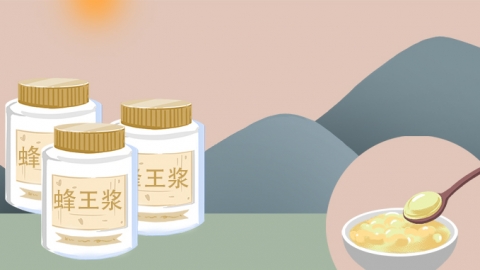What are the side effects and risks of royal jelly?
Royal jelly is a special milk-like substance secreted by the hypopharyngeal glands in the heads of worker bees, used to feed the queen bee and larvae. Its side effects and potential harms include allergic reactions, hormonal imbalances, gastrointestinal discomfort, hypoglycemic reactions, and worsening asthma symptoms. Detailed analysis is as follows:

1. Allergic Reactions
Royal jelly contains various proteins, peptides, and other bioactive substances, which can act as allergens in individuals with allergic constitutions. Consumption may trigger allergic symptoms such as skin itching, redness, rash, and hives. Severe cases may experience respiratory symptoms like wheezing, difficulty breathing, and even life-threatening anaphylactic shock.
2. Hormonal Imbalance
Royal jelly contains certain amounts of sex hormones, including estrogen, androgen, and progesterone. Long-term excessive consumption of royal jelly may lead to hormonal imbalances in the body. Women may experience menstrual disorders and breast hyperplasia, while men may suffer from effects on the reproductive system and symptoms related to endocrine disorders.
3. Gastrointestinal Discomfort
Royal jelly has a pH of 3.5–4.5, making it acidic, and contains some bioactive components. Consuming it on an empty stomach or in excessive amounts may irritate the gastrointestinal mucosa, stimulate excessive gastric acid secretion, and cause symptoms such as stomach pain, bloating, nausea, vomiting, and diarrhea.
4. Hypoglycemic Reaction
Royal jelly can regulate sugar metabolism in the body and promote insulin secretion, thus having a blood sugar-lowering effect. For individuals with inherently low blood sugar or those currently taking antidiabetic medications, consuming royal jelly may cause blood sugar levels to drop excessively, triggering hypoglycemic reactions such as dizziness, fatigue, palpitations, and sweating.
5. Worsening of Asthma Symptoms
The bioactive substances in royal jelly may irritate the respiratory tract. For asthma patients, consuming royal jelly may induce or exacerbate asthma attacks, intensifying symptoms such as coughing and chest tightness, causing discomfort to the patient.
Before consuming royal jelly, perform an allergy test by taking a small amount initially and observing for any adverse reactions. If no abnormalities occur, proceed with normal consumption. At the same time, strictly control the intake amount; avoid excessive consumption blindly and follow the principle of gradual progression.








